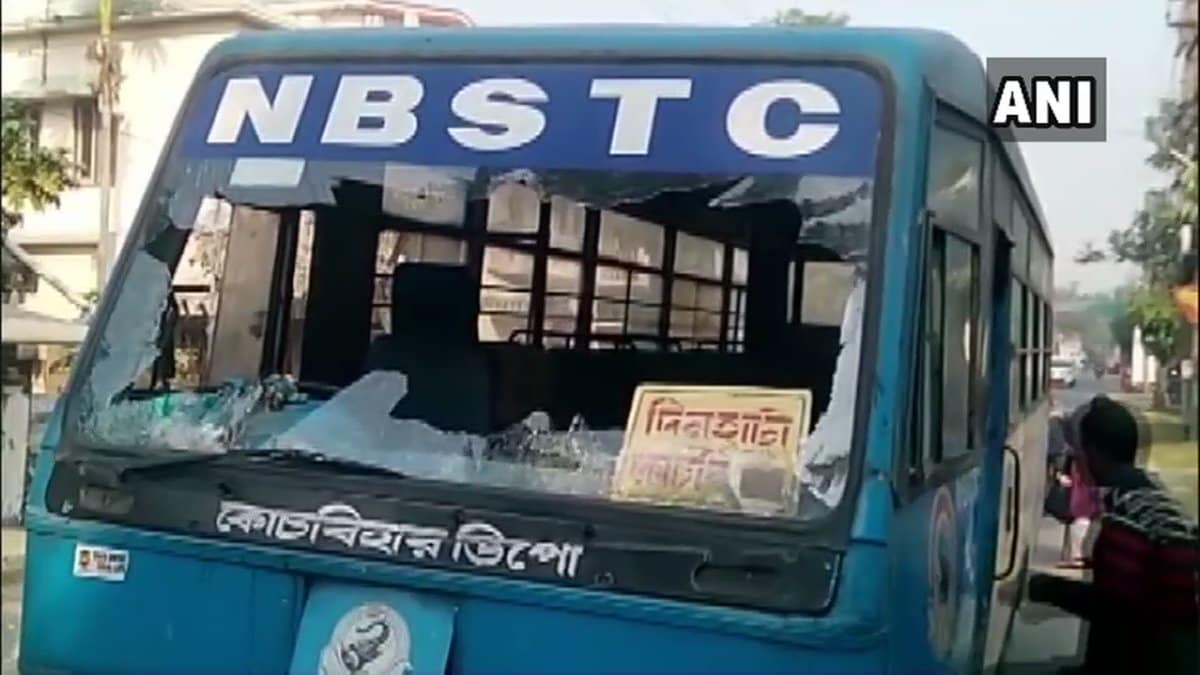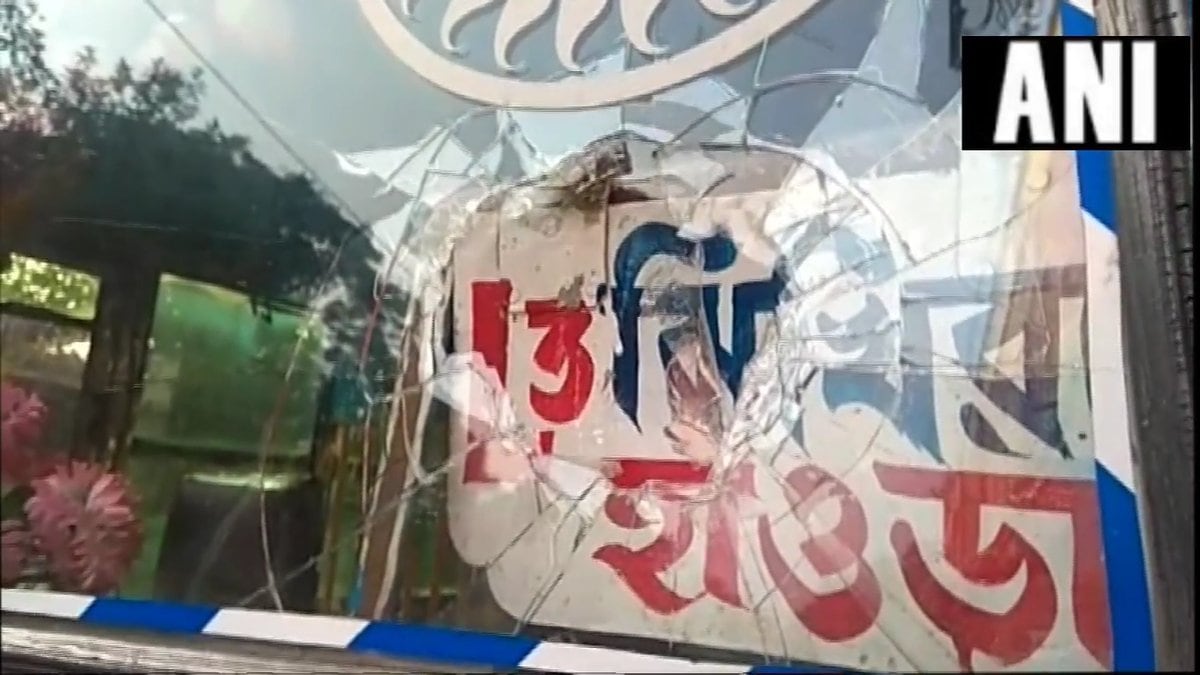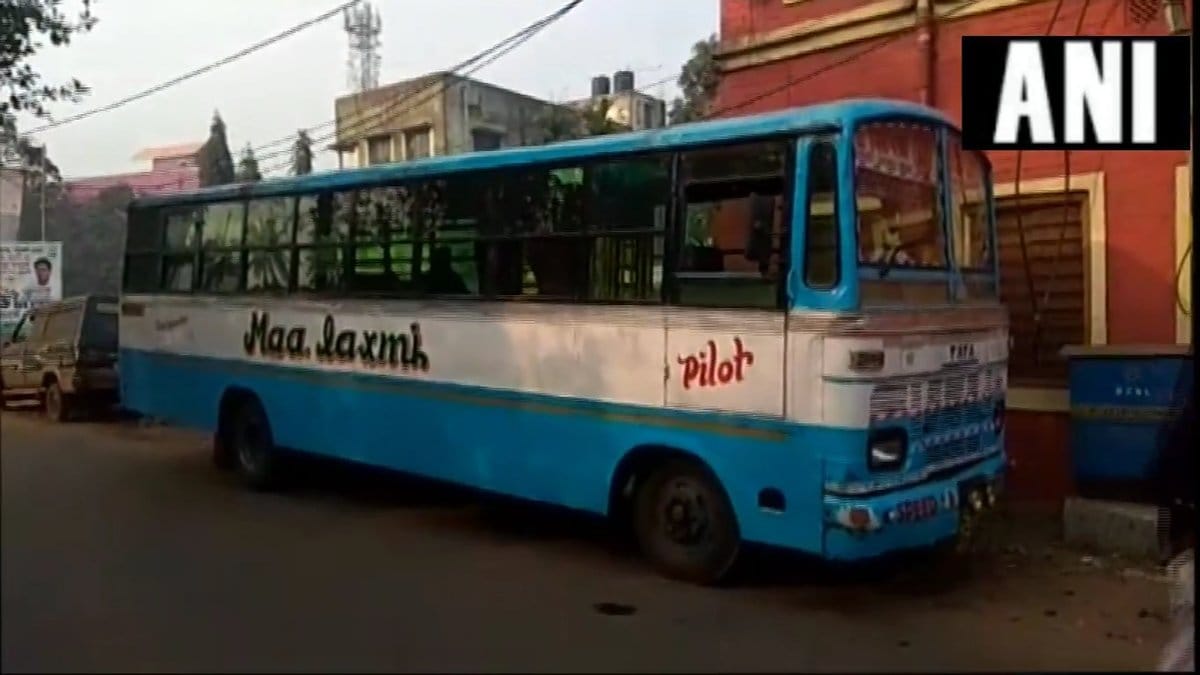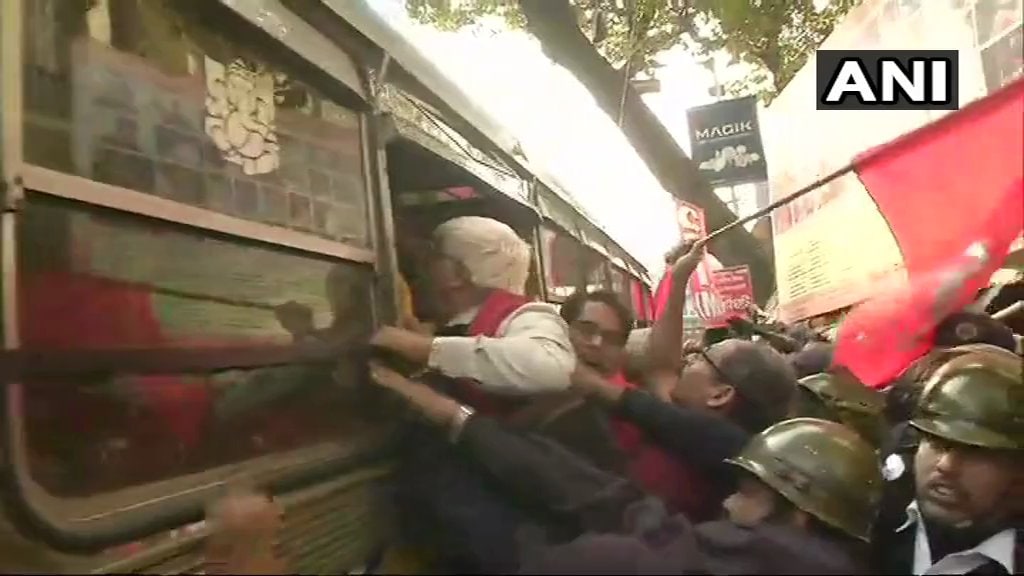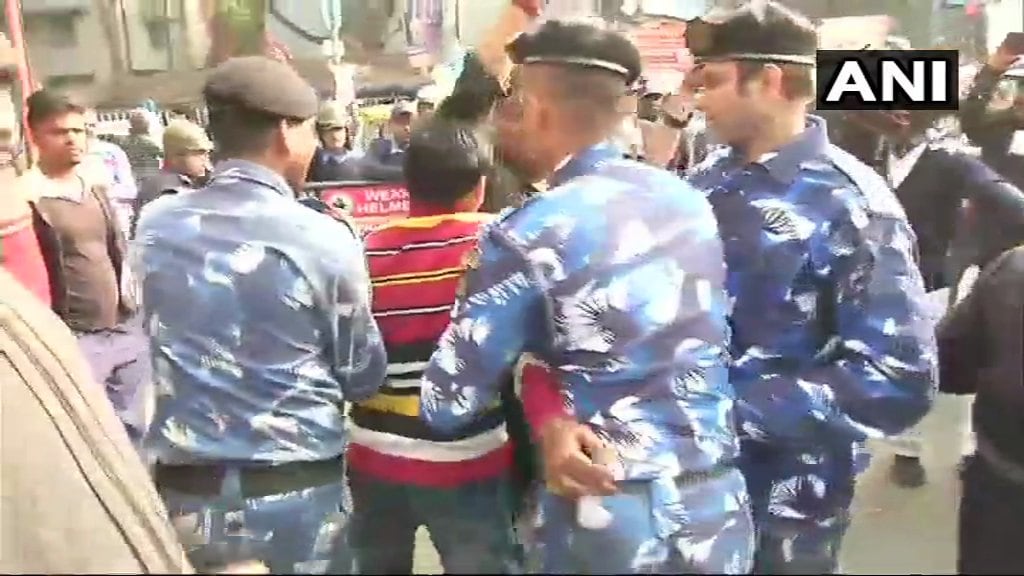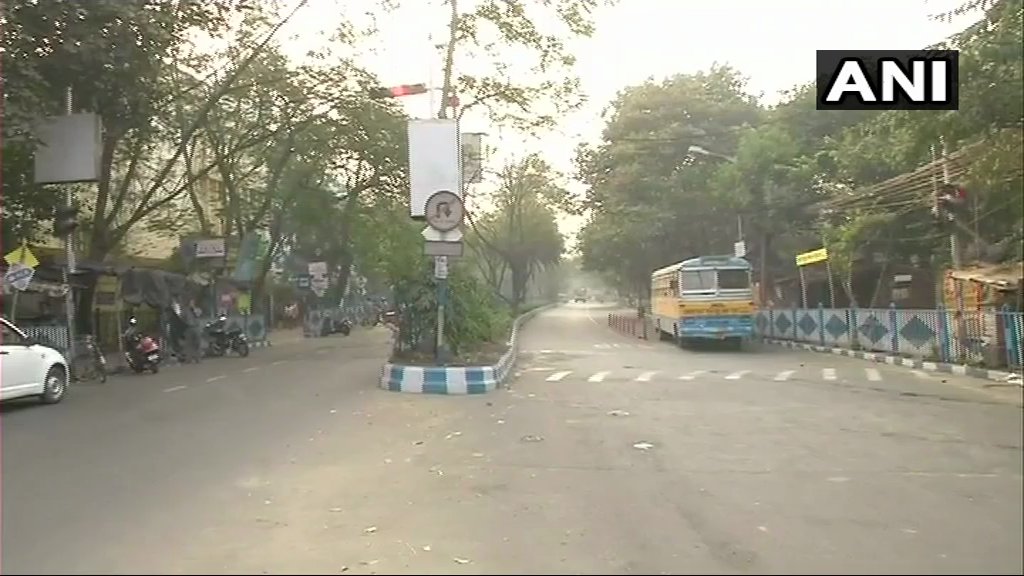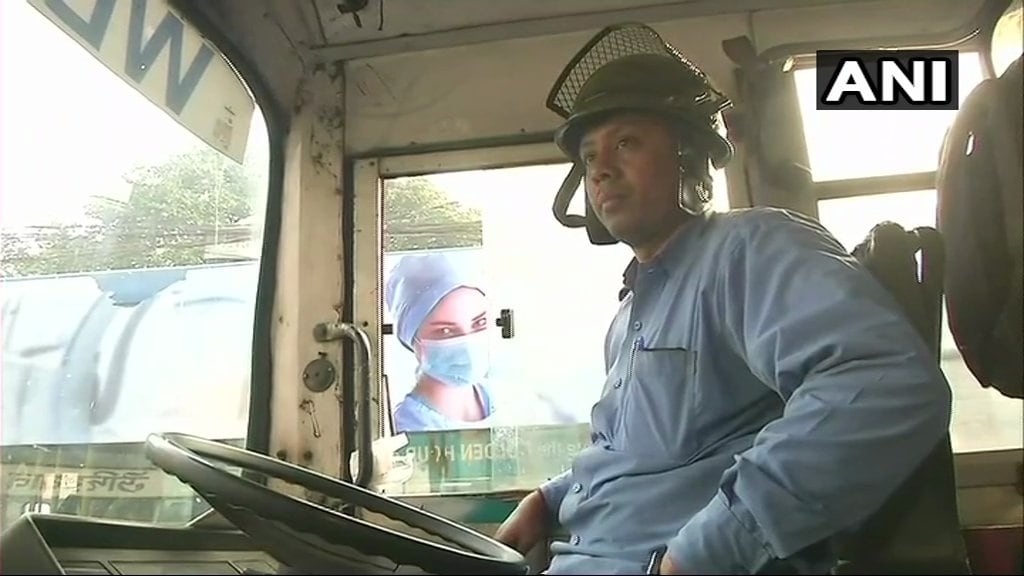The two-day Bharat Bandh called by ten trade unions disrupted normal life in many parts of the country yesterday. The bandh enters its second day today. The Bengal government has directed bus drivers to wear helmets. CPM leader Sujan Chakraborty, other protesters were detained by the police for participating in the violence. Sporadic violence was reported in West Bengal, Odisha and Kerala yesterday. Tyres were burnt and buses were vandalised at many places in Bengal. Protesters blocked roads and obstructed train services in all the three states on day 1. Around 20 crore workers of the Central Trade Unions (CTU) are participating in the two-day nationwide strike today and tomorrow. Trade unions are protesting alleged anti-worker policies of the Central government.
The strike has been called by the central trade unions against the alleged repressive policies for workers adopted by the government.
Here are the Highlights of Bharat Bandh's Day 2:
Normal life across Kerala was badly hit on Wednesday as the two-day nationwide trade strike entered its second day.
However, more shops and establishments opened their shutters on Wednesday compared to Tuesday.
Barring the Bharatiya Janata Party (BJP)-backed BMS trade union, all other unions supported the strike where the protesters have raised several demands including a raise in minimum wages to Rs 18,000.
State-owned private buses and contract vehicles remained off the roads but pilgrims to the Sabarimala shrine were allowed to proceed from all places on a limited scale.
More private vehicles were seen plying across the state, but auto rickshaws remained few in numbers.
While banks were shut, attendances in state and central government offices marginally improved since Tuesday.
All university examinations slated for Wednesday have been postponed and educational institutions were closed.
Even though the tourism industry had sought exemption from shutdowns, popular tourist destination like Alappuzha and Wayanad were badly affected as travellers was unable to move from one place to another.
There were also reports of rail and road blockades from several parts of the state.
Daily commuters, office goers and students suffered as private bus operators stayed off roads across Goa on Wednesday on the second day of the 48-hour nationwide trade strike called against the Centre's "anti-worker" policies.
While no incidents of violence were reported, according to the district administration, absence of private buses which ply on majority of the public transport routes, left passengers in distress, despite the fact that additional buses from the state government-operated Kadamba Transport Corporation (KTC), were pressed into service.
"I could not reach work. There were virtually no private buses along the Anjuna-Mapusa route, on which state Corporation buses do not operate," Alok Naik, a daily commuter said.
Transport Minister Sudin Dhavalikar said that all efforts were being made to minimise the impact of the strike in Goa.
"We have pressed extra KTC buses into service. Police security has also been beefed up in and around bus stops, railway stations and other key places where there could be trouble," Mr Dhavalikar said.
John Nazareth, President of the Goa Government Employees Association, said that government servants reported to work, because the Association only "morally supported" the strike, but did not participate in the same.
Train services were briefly affected on the Sealdah-Lakshmikantapur Namkhana and Diamond Harbour sections of Eastern Railway as strike supporters threw banana leaves on overhead wires.
A few trains, including the Howrah-Puri Satabdi Express, however, had to be cancelled, an official said.
Train services were also halted on the Sealdah-Habra line after a number of crude bombs were found along the railway track near North 24 Parganas district's Habra area.
The 48-hour nationwide strike called by different trade unions disrupted normal life across Odisha.
Trade unions are protesting alleged anti-labour policies of the Central government.
The strike mostly affected vehicular movement at several places as the agitators resorted to road and rail blockades.
They obstructed train services in Bhubaneswar, Balasore, Berhampur, Cuttack and many other places in the state.
The agitators were seen picketing in Bhubaneswar. However, many vehicles were plying without any hassles in the capital city.
The protesters also staged picketing at various public sector undertakings and offices.
Schools, colleges and universities in several districts remained closed in view of the strike.
"Our strike has been successful on its second day. We are protesting the anti-labour policies of Narendra Modi government and the people are supporting our cause," said Sauribandhu Kar, state General Secretary of All India Trade Union Congress.
The trade unions are protesting for the fulfilment of a 12-point charter of demands including inflation control, minimum wages, social security schemes, stalling privatisation of government enterprises, discontinuation of foreign investments in railways, banks and insurance sectors and jobs for unemployed youths among others.
Angry protesters stormed into the cabin of a State Bank of India (SBI) manager in Thiruvananthapuram and vandalised it.
"At around 10.15 a.m., angry protesters came into my cabin and asked if I did not know that today is a protest day. I told them that although we are open, banking operations were not taking place. Then they threw the computer and other properties on my table," Santosh Karunakaran, the manager, told IANS.
The branch is located near Chief Minister Pinarayi Vijayan's office and also the temporary union office of the protesters.
The bank has lodged an official complaint and the police have launched a probe.
